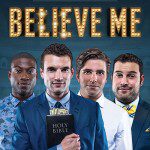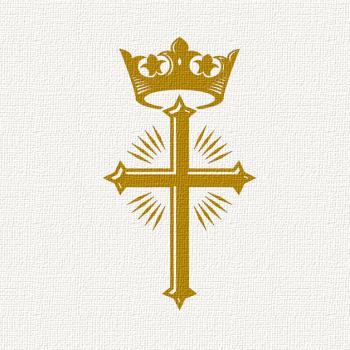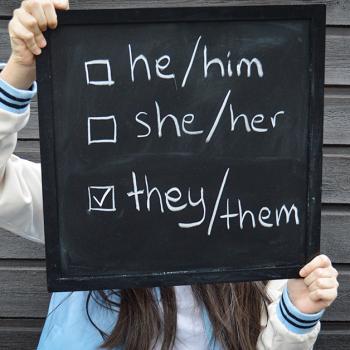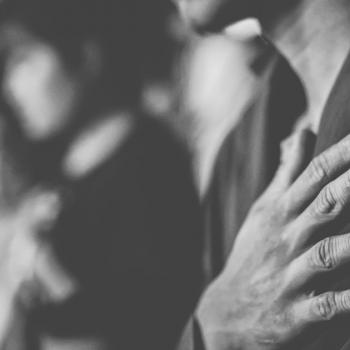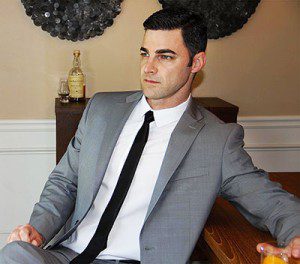 Today’s guest post is written by David Simms of Alpharetta, GA:
Today’s guest post is written by David Simms of Alpharetta, GA:
Inside the atheist blogosphere, it’s easy to read the growing number of stories about atheists coming out to their loved ones and to walk away with a dismal view of religious people and an awful sense of hopelessness. Let’s face it – many theists don’t take the news that well. But is their reaction really surprising to us?
When we atheists say that we have no reason to believe in the existence of a god, our loved ones feel that we are undermining a belief which they hold sacred. In the case of many religious parents, they deem this belief so important that they try to cultivate it in their children from the day they are born. But now after all those years of being trained to believe, we are rejecting it. For many of these parents, it can be seen as an intentional affront to their beliefs and their parenting.
In coming out, we’re also changing the nature of our relationship with our religious loved ones. Sure, we may still share other things in common with them. But, those pale in comparison to sharing a religion with them. This is especially problematic in the South where both religion and family are held in the highest regard as two of the most important things in any individual’s life.
Every time our religious friends and family see us, they are reminded that we view their deeply held convictions about God, the afterlife, the basis of morality, and the source of happiness as being totally and utterly wrong. And who was it that caused this shift in the relationship dynamic? In their eyes, we did when we told them we no longer believed in a god.
I don’t say any of this to make excuses for the unsupportive, unloving, unempathetic, or mean-spirited reactions we’ve heard about so often. I say it to simply set the stage for the story I’m about to tell you. It’s important to understand the context in which these reactions happen, to try to get a better understanding of why they happen, and to practice a behavior which more people need to try out in situations like this – empathy.
When we understand these things, it makes it all the more hopeful and encouraging to hear stories that could easily become just another anecdote in this unhappy narrative, but somehow they don’t. That’s what I want to share with you. This is a story of hope.
ONCE UPON A TIME
To get an even better understanding of how easily my story could have gone south (Get it? Dixie…South? Nevermind.), it’s necessary to understand the family and the culture I grew up in. First, I’m a PK. The other PKs will know what I mean by those initials. For those who don’t, I’m a Preacher’s Kid. My father has been a Southern Baptist pastor for over 40 years. He spent 31 of those years as the senior pastor of a large Southern Baptist church in Athens, GA. And, he’s still going strong as a travelling pastor even after his retirement in 2012.
But it isn’t just my father whose life centered around Christian evangelism. My father, grandfather, and uncle were all Southern Baptist pastors. There are even more pastors and missionaries in my extended family. I come from a long line of people who have worked directly in Christian ministry.
My parents had me attend a fundamentalist Christian school from the 5th grade through high school graduation. I call it a “Fundamentalist Christian school” because I was taught Young Earth Creationism (which I fully accepted as truth). We had Bible classes and chapel services multiple times during the school week (where we were only allowed to read from the King James Version of the Bible, and the use of any other translation earned us demerits). We regularly had speakers from extremely conservative Christian colleges such as Pensacola Christian College, Liberty University, and Bob Jones University who would preach sermons and recruit students to their schools. This was the environment where I received my “education” during my most formative years because my parents felt this was the best place for me.
My Christian indoctrination didn’t stop at just my school day, either. Naturally, with my father being the pastor of our church, I was attending church functions whenever the doors were open. I was highly active in youth group, Sunday school, Sunday night services, Wednesday night services, summer retreats, RAs…this list could go on for a while. The church also played a big role in my love life. I met my wife at the church where I grew up. I proposed to her in that same church. We married in that church, and my father officiated the ceremony. My wife and I regularly attended services, Bible study groups, and Sunday School together. Our shared religious views helped us make our initial connection, and the social structure of church functions provided an outlet where we could get to know each other better.
I think it’s pretty clear that, for the first 27 years of my life, my world revolved around Christianity. That’s exactly what my family hoped for me.
THERE’S MORE AT STAKE HERE THAN JUST YOUR REPUTATION
Besides being potentially more indoctrinated than your typical Southern Christian, growing up as the pastor’s son came with an additional albatross. I was consistently reminded that anything I did directly reflected on my father’s character and his ability to lead his flock.
As a 9-year-old who goofed off a bit too much during Sunday School, as many kids will do, on more than one occasion I was pulled aside by either my parents or my teachers and told that my behavior made my father look bad in the eyes of the church. So you can imagine that when I was 15 and I got kicked out of church camp for mooning a cabin full of girls, there was hell to pay. But, that’s a story for a different time.
The point is that there were things which were expected of me and the way I lived my life. It wasn’t just a matter of personal responsibility, accountability, and integrity. It was a responsibility to look out for my father’s reputation because my actions and my beliefs could impact him and his livelihood.
You can see the potential for bad consequences and negative reactions to something like telling my family I no longer believed the very thing they made the primary focus of our entire universe. But, thankfully, that isn’t my story.
HOLY CRAP…I’M AN ATHEIST
The story of how I became an atheist is pretty similar to others you’d read in the atheist blogosphere. It started with a desire to be sure that I had good reasons for believing what I believed. It was through that studying, however, that I discovered I didn’t have any such reasons.
The moment I realized that I was an atheist was surreal. It was an entire 180° shift in the way I viewed the world around me. It wasn’t as simple as saying “Huh, I don’t actually believe in God anymore.” For people like me, it’s a radical departure from the way you have made decisions, the way you view people whose lifestyle you once held in contempt, and even the value you place on your earthly life.
In my moment of admission, I remember driving my car and saying out loud, “Holy crap. I’m an atheist.” OK, fine…I used saltier language than that. I suddenly found that I had a new lease on life and a much greater appreciation for the life I still had the opportunity to live.
Never being one to hide my true feelings and opinions from others, I voiced my new positions, especially over social media. During the process of my deconversion and after, my friends knew where I stood. Instead of worrying about how people would react, like many reasonable people would, I poked the hornet’s nest without much concern for how it would affect my current life situation. Looking back, I could have handled some situations more delicately. Having found myself free from the indoctrination that had burdened me for so long, I wanted to tell people. I wanted people to know how I had changed for the better and why.
I didn’t scream it at the top of my lungs to everyone I encountered. I didn’t go door-to-door telling people my good news. But I didn’t hide my atheism from people, either. If asked about my viewpoint, I responded honestly. In all of these interactions with theists, both online and in the real world, I experienced a few different reactions.
I can say that I shared many of the experiences that Neil Carter and Deanna Boudov had (you’ll be hearing from her later this week). In her story, she lists the many reactive comments you often get from religious friends and family. I’ve heard plenty of them myself, including:
1. You’re not really an atheist.
2. What bad thing happened to make you turn your back on God?
3. You’re probably just mad at God.
4. You think you’re so smart, but all your fancy words aren’t going to mean anything when you’re bowing at God’s throne begging for forgiveness.
…and, my personal favorite…
5. What pervert liberal college professor poisoned your mind against God?
I should note that none of these came from my family members or even from people I would consider close friends. So, how did my very Christian family react?
MY WIFE
As I mentioned before, I’m not one to hide my true feelings. My wife was there to witness my entire transformation and deconversion. She saw me reading and studying. I discussed with her some of the interesting things that I learned. As I did, I tried to be mindful of the fact that this could be an awkward subject to talk about if we disagreed on some of the fundamental principles. But during this process, she knew where I stood.
We never actually had to have the “I’m an atheist now” talk because she witnessed the whole thing unfold. Perhaps it was seeing this gradual change that allowed her to incrementally adjust to the idea that we had acquired differing views on Christianity.
When I finally did begin using the atheist label, my wife handled it the same way she handles so many other situations in her life – with grace, love, and kindness. We’ve said to each other that, even though our shared religious beliefs played a role in our getting together in the first place, we didn’t decide to be with each other because of our shared religious beliefs. So even though we no longer share a belief in the existence of a God, this does nothing to change the fundamental reason we are together. We are together because we love who and what the other person is as a whole.
But am I really still the same person? Have I changed since my deconversion? Sure, I have changed. But in my mind, it is a change for the better, and my wife tends to agree. As a Christian, I often had a bleak outlook on this earthly life. I could be quite judgmental, angry, and callous.
The role Christianity played in fostering these negative qualities is a discussion for another time. But the simple fact is that once I abandoned my Christian beliefs, these qualities seemed to slip away. My wife has noticed my improved outlook on life, and she appreciates the positive change even though she still finds it troubling and confusing that, for me, it took breaking away from Christianity to enact this change.
Certainly, we have tough discussions about our differing views and how they might affect our relationship. We’re honest with each other. But through it all, she continues to love me, and I continue loving her.
Interestingly, as we have discussions about theology, philosophy, and the like, we realize that we do still agree on a great number of topics. We’re able to have these productive conversations because of the person she is. That is one of the reasons I fell in love with her.
(And, since you might be wondering, no we don’t have children. We decided a long time ago that children weren’t for us. So, there are no complications with how our children should be raised. I guess that does make this whole thing a lot easier, doesn’t it?)
So, I never had to have the “I’m an atheist” talk with my wife. But, there were still other people in my life that I did have to have that talk with. How did that go?
SO, DAD, HERE’S THE THING…
Again, during my deconversion, many people in my life knew some of what was going on. That includes my parents. They knew I was questioning. They knew I was no longer attending church every time the doors were open. Eventually the time came where I just had to lay it all out, without mincing words, without beating around the bush, and without trying to obfuscate the truth. I had to say in no uncertain terms, “I am an atheist.”
I should mention that, in telling my parents, I was more focused on my Dad’s reaction than my Mom’s. That’s not because of gender role discrimination, nor is it because I am closer to my Dad than I am my Mom. It’s simply that he had been a Southern Baptist pastor for more than 40 years and I expected more of a reaction from him than I did from her.
When the time came, I decided to put all of my feelings down in a very long email. I know…I know. An email? Isn’t that a bit impersonal? Perhaps. But it was also the best method for me to communicate clearly, giving me the time to prepare my words carefully, and giving him the opportunity in his own time to reflect and react to what I had said. By doing it through writing, neither of us was put on the spot.
So I crafted my letter. And within the first few sentences, I dropped the bomb in my thesis statement – “I am an atheist.” What followed from there were the reasons behind this personal realization. I had finally realized that I didn’t have good reasons for believing what I believed. Faith was insufficient. I needed sufficient justification for accepting claims.
I laid it all out on the table.
I fully expected a lengthy reply in return. I assumed he would go through my email, point-by-point, and offer counters to the case I had just made; but he didn’t. What I got back was…surprising. And, to this day, I maintain that his reaction made me respect him even more as a human being.
He said, “We don’t need to debate this. That’s not what fathers and sons do. I love you.” And, that was that. This was his entire response.
You thought there would be more, didn’t you? I’ve just spent the last 2,500 words building up this story in your mind. You’ve been waiting for the payoff. And, now, this brief climax may seem a bit underwhelming. Now, you know how I felt.
For weeks, I had built up this scenario in my head, wondering exactly how it would play out and anticipating his potential reactions. Yet this was the reaction that I got. It wasn’t quite what I expected, although I’m not sure why.
Throughout my life, I’ve known my father to be a kind, caring, and empathetic man. Sure, he could be tough as nails when the situation called for it. But as anyone who knows my father could tell you, he truly cares about people, and his family is obviously no exception.
I wasn’t an embarrassment to him or my mom. He didn’t view my change in beliefs as a slight against them personally or as a blemish on his public reputation. I was his child. He disagreed with my position, to be sure. But that didn’t change how he felt about me as a person.
So this was his immediate reaction to my announcement. What’s happened since then, you might ask? Has he tried to push the issue? Has he brought it up during family gatherings, or made any remarks over email? Far from it.
In general, we just don’t talk about religion. The few times it has come up since then, it was because I broached the subject. And even then, the discussions have been courteous, respectful, and brief. We both approached the topic from an intellectual standpoint, rather than an emotional one.
In one conversation, he revealed to me a bit about what motivated his reaction to my announcement. I’m paraphrasing, but his words were essentially, “I respect the man you have grown up to be. I respect your intellect, and they way you really try to analyze what you believe. It makes you a stronger person.”
None of this is to say that he has accepted the fact that I am an atheist and he has moved on. It’s not even that he doesn’t care. I’m sure he does. But, he also knows how to act like a rational, caring, empathetic, and loving adult, and our relationship is better for it.
Who knows what the future will hold for my relationship with my parents? If history is any indication, they will keep loving me the way they always have, and I’ll continue loving them. I’ll respect and appreciate them for who they are, acknowledging that we may always have this difference between us.
IT’S YOUR CHOICE
My story serves as an example to mothers, fathers, brothers, sisters, cousins, uncles, wives, husbands, and every other human being on the planet who knows an atheist like me. Too often, our “coming out” stories end with anger, resentment, and intolerance. But it doesn’t have to be that way. It can be better. You can be better.
When we decide to come out to you, consider your reaction. Consider what the atheist in your life might be feeling. Consider how your future relationship with them will be impacted by how you choose to behave.
No longer are you dealing with the anonymous and ambiguous “them.” The “opposition” that you’ve been told to fight against is no longer a nameless faction lurking in the shadows. This person has a face. S/he has a name. This is someone you’ve cared for, loved, and respected. This is a fellow human being with whom you have shared a personal relationship.
Now you have an opportunity to make his/her life better through your reaction. Too many people have been hurt by individuals who willfully fall into a stereotype of religious bigotry. You have the chance to break that stereotype. You have the chance to make this world a little bit better.
It’s your choice.
__________
David Simms is a graphic designer and web developer in Alpharetta, GA. After spending almost 30 years as a fundamentalist Southern Baptist and Young Earth Creationist, he became an atheist and a strong advocate for science, skepticism, and the separation of church and state. He can be reached at [email protected].

